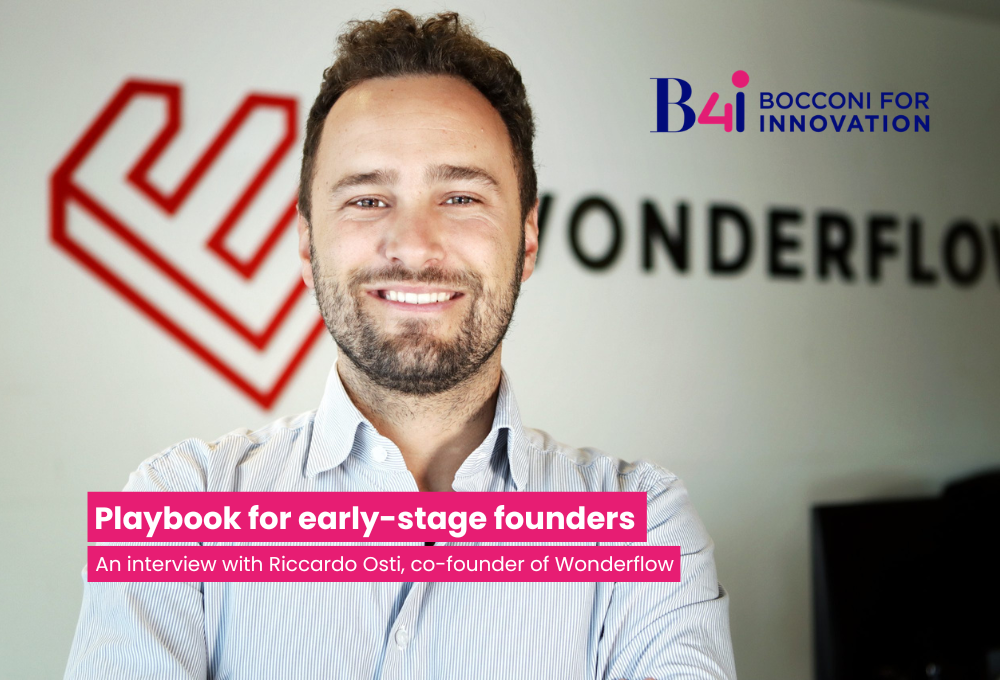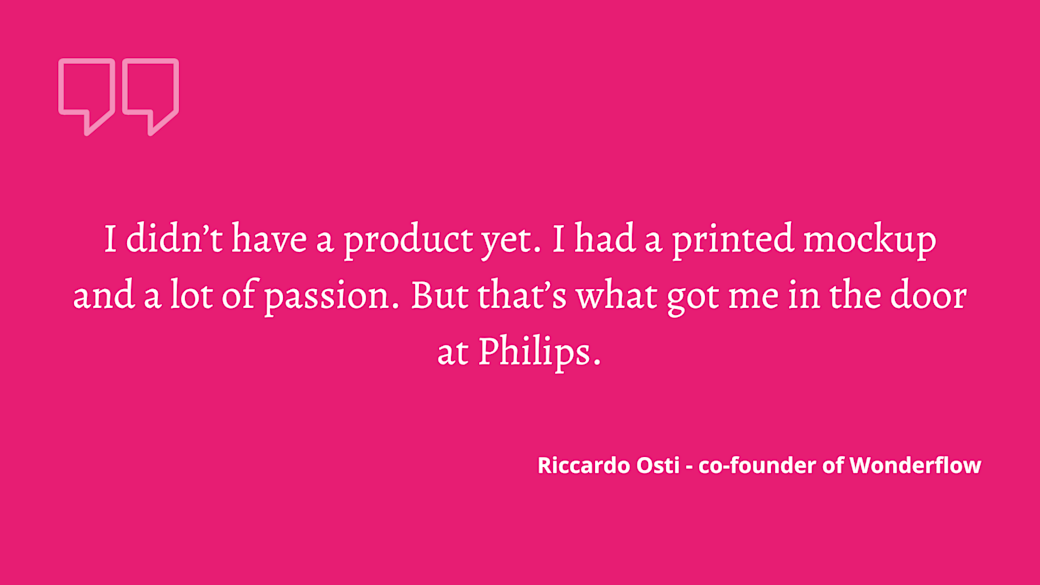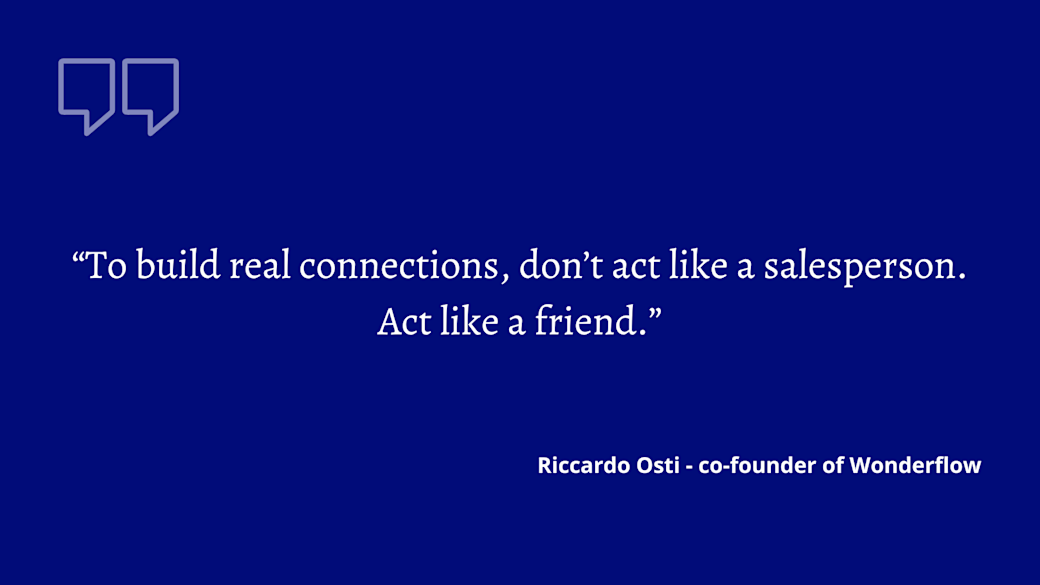


It all started with a room full of aspiring founders and one seasoned businessperson ready to speak their mind. The occasion? A Fireside Chat led by Augusto Coppola, Program Director of the Future Founders Program. The guest? Riccardo Osti, a tech entrepreneur with deep expertise in AI and customer experience, and co-founder of Wonderflow. This company has helped global brands such as Philips, Pirelli, Nestlé and Lavazza to understand customer feedback using advanced analytics and AI.
What followed was not a keynote speech, but an open exchange shaped by future founders. The questions — sharp, practical, and occasionally personal — came directly from the participants. And that’s what made it powerful. Every answer touched on a real tension in the startup world: how to raise funds, win trust, hire the right people, and grow without losing your identity. There was no grand theory, just decisions made under pressure and their subsequent reflection.
 Riccardo osti quote
Riccardo osti quote"I'm Riccardo Osti, co-founder of Wonderflow. We were among the first to use AI to analyze the customer feedback such as reviews, survey responses and call centre feedback. Today it's mainstream, but 12 years ago, we did much of it manually before developing our own technology. "
"Our first investor came on board not because of a perfect pitch deck — we didn’t have one. He was convinced by how deeply we believed in the problem we were solving and the energy with which we talked about it. To give you an idea, at one point I invited him to join a meeting we had with Philips. He wasn’t just an observer — he got to see firsthand how much interest and excitement our idea sparked with the client. That moment made it real for him. It wasn't about numbers or slides anymore. It was about momentum. That’s when he decided to invest."
“Pitch the problem and yourself. I invest early on, and when I do, I tell the founder: 'I’m not investing in your product, I’m investing in you.' How you think, how you handle obstacles and how you adapt. That’s what matters.”
 Riccardo osti quote 2
Riccardo osti quote 2"We had no name, no real traction — just the belief that we were solving a real problem. So instead of going to startup events, we went where our potential clients were. For example, we attended the Consumer Electronics Show in Las Vegas. Our competitors weren’t there, but our target customers were. I’d walk up to people at stands, ask for ten minutes of their time, and explain what we were developing. No polish, just genuine passion. One of those conversations turned into a partnership with Philips, who later became our first global customer. That’s how trust is built at the beginning: face-to-face, with nothing but energy and a clear problem to solve."
'You get creative. I found ex-executives on LinkedIn — people who had recently left the company I wanted to contact — and asked them for 10 minutes of their time to pick their brains. No pitch. I'd just say, 'Here's what I'm working on. Can I get your take?' One of them got me an interview at P&G.”
“To build real connections, don’t act like a salesperson — act like a friend. Be authentic and honest. People invest in people they genuinely like and want to spend time with. Imagine I ask you to describe a top-performing salesperson and a close friend. What words would you use? You're probably going to say that the salesperson is persistent and disciplined. What about the friend? Empathetic and fun. This contrast is exactly the point. Investors and clients are people first — and relationships are built on human connection, not hard selling.”
"Hiring too quickly. Especially salespeople. It’s easy to be impressed during interviews, but if they underperform, it's painfully slow to replace them. I also undervalued my own judgement compared to that of senior hires. Founders must trust their instincts more "
"After 10 years, I realized I wasn’t the best person for the next phase. Running the board and dealing with investors wasn’t fun anymore. So I brought in a new CEO and stepped back. Now I invest and teach. In fact I’ll be the first sales professor at a European university."